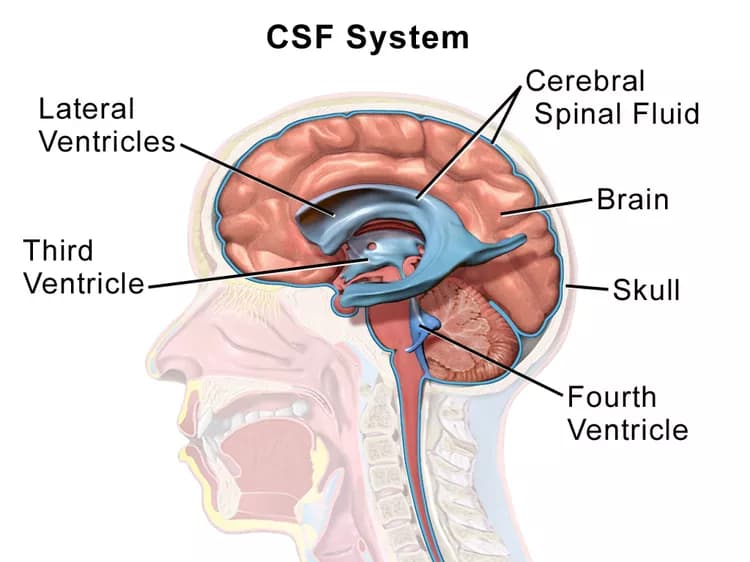
Early Signs Of Alzheimer's Detected In Cerebrospinal Fluid
Little is known about the role of the brain's immune system in Alzheimer's disease. Researchers at the Munich site of the German Center for Neurodegenerative Diseases (DZNE) and the hospital of the Ludwig Maximilian University (LMU) Munich have now found an early immune response in individuals with a genetic predisposition to Alzheimer's: their brain's showed abnormal immune reactions as early as about seven years before the expected onset of dementia. These results demonstrate that in cases of Alzheimer's, inflammatory processes in the brain evolve dynamically and are precursors of dementia. These immune responses can be detected by means of a protein in the cerebrospinal fluid, offering physicians the possibility to trace the progression of the disease. The study results are published in the journal Science Translational Medicine.
The scientists headed by Prof. Christian Haass and Prof. Michael Ewers were able to detect an increasing immune activity of the brain by measuring levels of the protein "TREM2" in the cerebrospinal fluid. TREM2 is segregated by certain immune cells of the brain -- called microglia -- and thus reflects their activity. In cases of the inherited form of Alzheimer's disease, the timing for the onset of dementia can be precisely predicted. The researchers were therefore able to monitor the rise of TREM2 levels years before the expected occurrence of dementia symptoms.
"The activity of the microglia is stimulated by dying brain cells, not by the deposits of amyloid proteins, called plaques, which also occur in Alzheimer's disease," Haass notes. "The microglia may have a protective function, which however comes to a standstill as the disease progresses. We are therefore searching for drugs to increase the activity of the microglia."
Part of the DIAN project
127 individuals with a genetic predisposition to Alzheimer's participated in the study. They were on average 40 years old. The vast majority showed no symptoms of dementia or had only minor cognitive impairments. The study was conducted as part of the so-called DIAN project (Dominantly Inherited Alzheimer Network), a worldwide network for research into the inherited form of Alzheimer's disease.
According to Ewers, "There are many similarities between the inherited form of Alzheimer's disease and the so-called sporadic variant, which is far more common. TREM2 levels could therefore be a biomarker used to track immune activity while Alzheimer's is progressing, irrespective of whether the disease is genetic or not. TREM2 may also serve as a therapeutic marker to monitor drug response. We will look into these aspects in the future."
Materials provided by DZNE - German Center for Neurodegenerative Diseases. Note: Content may be edited for style and length.
Disclaimer: DoveMed is not responsible for the adapted accuracy of news releases posted to DoveMed by contributing universities and institutions.
Primary Resource:
Suárez-Calvet, M., Caballero, M. Á. A., Kleinberger, G., Bateman, R. J., Fagan, A. M., Morris, J. C., ... & Dominantly Inherited Alzheimer Network. (2016). Early changes in CSF sTREM2 in dominantly inherited Alzheimer’s disease occur after amyloid deposition and neuronal injury. Science Translational Medicine, 8(369), 369ra178-369ra178. DOI: 10.1126/scitranslmed.aag1767
Related Articles
Test Your Knowledge
Asked by users
Related Centers
Related Specialties
Related Physicians
Related Procedures
Related Resources
Join DoveHubs
and connect with fellow professionals

0 Comments
Please log in to post a comment.